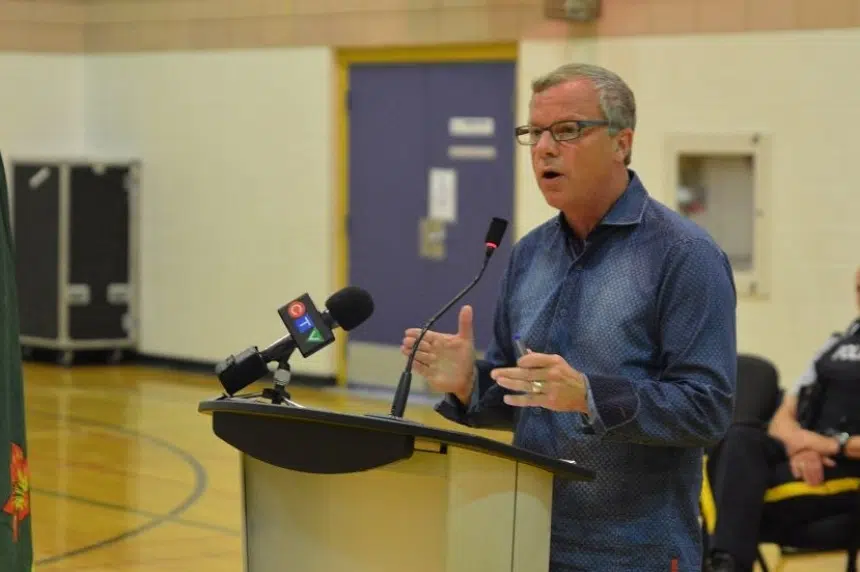Roaring applause met Premier Brad Wall’s announcement of the Dene Teacher Education Program (DTEP) in La Loche Tuesday afternoon.
The Aug. 16 announcement was one of many promises made by Wall during his fifth visit to the community following the tragic January shootings which left four dead and seven others injured.
“The Ministries of Advanced Education and Education are partnering with the First Nation’s University of Canada to offer DTEP to up to 30 students over four years,” Wall announced.
DTEP will cost $480,000 over the course of those four years. The province is providing 50 per cent of the funding, with the Northern Lights School Division and Clearwater River Dene First Nation covering the remainder.
Preserving culture was the main focus of this funding commitment, as, according to Wall, learning a traditional language in school helps to boost student retention and instill pride in the community.
“Local students who want to be teachers are trained with the specific focus and reference in terms of Dene culture and tradition to better connect with students here,” he said.
Farris Lemaiger, from the Clearwater River Dene First Nation is one of 30 students taking part in the program which began back in July.
“I’m enjoying this a lot, because a lot of the students I went to school with, grew up with and we’re all very comfortable learning with one another,” Lemaiger said. “Learning in our own language is very rewarding and also very educational at the same time.”
Besides funding for the DTEP program, Wall announced Northlands College will now offer a tri-trades program at the community’s high school. Fifteen young adults, ages 18 to 22, will work towards attaining their Grade 12 credential while receiving skills training in heavy equipment, truck and transport, and automotive mechanic trades.
As well, Dumont Technical Institute will offer a new adult basic education program for 20 adults to earn Grade 12 credits. Graduates are guided into the labour market or helped to pursue post-secondary education opportunities.
Both programs are estimated to cost $475,000 and fully funded by the province.







